-
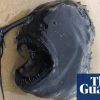 +12 +3
+12 +3Fangs and tentacles: rarely seen deep sea fish washes up on California beach
The Pacific footballfish, which was featured in Pixar’s Finding Nemo, was found in perfectly preserved condition
-
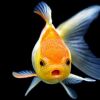 +26 +2
+26 +2Fish May Actually Feel Pain After All, Argues a New Paper
The parts of the human brain that process the unpleasantness of pain have no equivalent in the brains of fish. So, does that mean fish aren't able to feel pain? Not necessarily, according to a new paper.
-
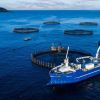 +10 +2
+10 +2'Not clean, not green, not even healthy': Author slams salmon farming
Prize-winning author Richard Flanagan slams the Tasmanian salmon industry, describing it as disastrous for the environment, with overstated health benefits — and alleging the public had not been told the extent of the expansion plans for fish farms around the state.
-
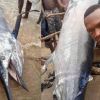 +16 +4
+16 +4A local Nigerian Fisherman captured a Blue Marlin Fish reportedly worth $2.6 million but ate it with his friends.
A local Nigerian fisherman is making rounds on social media for eating a Blue Marlin fish reportedly worth $.26million (N1.2b) moments after it was captured.
-
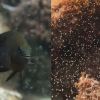 +22 +3
+22 +3We found algae-farming fish that domesticate tiny shrimp to help run their farms
While humans domesticate plants and animals, these relationships are surprisingly rare in other species. Our new study found a species of fish that appears to have domesticated a kind of tiny shrimp.
-
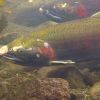 +16 +3
+16 +3Salmon are dying off and your car tires might be to blame
Every fall, coho salmon undertake an epic journey from the ocean back to the freshwater streams and creeks where they were born so they can reproduce and then die shortly after. For several decades, though, scientists have observed that a disturbing number of these migrating fish in the Pacific Northwest die while swimming through urban waterways polluted by stormwater runoff. At some sites, between 40 and 90 percent of returning salmon may die before they have a chance to spawn.
-
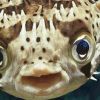 +12 +1
+12 +1Fish Have Feelings, Too: The Inner Lives Of Our 'Underwater Cousins'
When you think about fish, it's probably at dinnertime. Author Jonathan Balcombe, on the other hand, spends a lot of time pondering the emotional lives of fish. Balcombe, who serves as the director of animal sentience for the Humane Society Institute for Science and Policy, tells Fresh Air's Terry Gross that humans are closer to understanding fish than ever before.
-
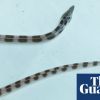 +16 +4
+16 +4Snake eels burst through the stomach of predators in bid to escape being eaten alive
Creatures’ attempts are in vain, and as they are unable to burrow through the fish’s ribcage, the eels become trapped in the gut of their captor
-
 +8 +2
+8 +2SAVING Endangered SEAHORSES
We saved 53 Endangered Sydney Whites Seahorses by relocating them to a new home! Their home near Manly Beach, Sydney was being demolished and as poor swimmers they would've perished. Luckily we got there first! Hope you enjoy the short heartwarming video
-
 +21 +6
+21 +6We should stop buying fish until the industry stops slaughtering dolphins
How many people want dolphins killed? Apart from the psychopath shooting them in Florida, and the Japanese hunters slaughtering them every year in Taiji cove, I would hazard a guess at none. They are perhaps the world’s most loved wild animals. Yet, every day, dolphin killers form an orderly queue, at supermarket checkouts in the UK and around the world. If you are buying fish, and there is no clear and watertight guarantee, you are likely to be complicit in something that would revolt you.
-
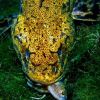 +4 +1
+4 +1Return of the burbot: 'great lost fish' to be reintroduced to UK
Forget dreams of wolves, bears or lynx – the next animal to be restored to the British countryside could be a river bottom-dwelling fish that resembles a giant tadpole. The burbot, much-maligned for its unprepossessing appearance with a fleshy appendage dangling from its chin, was last sighted in British rivers in 1969.
-
 +13 +1
+13 +1The Blood Pipe Is Still Spewing Blood After Nearly Two Years
Newly-obtained footage shows the underwater fish farm pipe in British Columbia is still churning out virus-infected blood and guts.
-
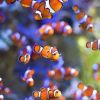 +18 +4
+18 +4Losing Nemo: Clownfish 'cannot adapt to climate change' due to their specific mating habits, scientists say
The star of Pixar's blockbuster "Finding Nemo" may be about to vanish again - this time for good - as its peculiar mating habits put it at risk from climate change, scientists said on Tuesday. They observed the vibrantly coloured clownfish - which live in anemones - for more than 10 years around Kimbe Island off eastern Papua New Guinea.
-
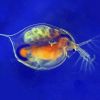 +18 +1
+18 +1Nanomaterials in wastewater have toxic effects on crustaceans and fish
You may not always think about it when you do your laundry or flush the toilet, but whatever you eat, wear or apply on your skin ends up in wastewater and eventually reaches the environment. The use of nanoparticles in consumer products like textiles, foods and personal care products is increasing. What is so special about nanoparticles is their tiny size: One nanometer is one-billionth of a meter.
-
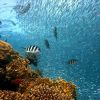 +14 +4
+14 +4Fish experience pain with 'striking similarity' to mammals
A new University of Liverpool study has concluded that the anglers' myth 'that fish don't feel pain' can be dispelled: fish do indeed feel pain, with a similarity to that experienced by mammals including ...
-
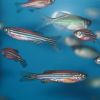 +15 +3
+15 +3Fish experience pain with ‘striking similarity’ to mammals - University of Liverpool News
A new University of Liverpool study has concluded that the anglers’ myth ‘that fish don’t feel pain’ can be dispelled: fish do indeed feel pain, with a similarity to that experienced by mammals including humans.
-
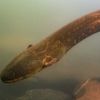 +8 +1
+8 +1World’s most 'shocking' animal identified
A newly discovered species of electric eel can produce an 860-volt electric shock.
-
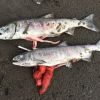 +23 +4
+23 +4Heat stress that killed thousands of salmon in Alaska is a sign of things to come, scientist warns
Scientists believe heat stress killed thousands of salmon in an Alaskan river last month. From July 7 to 11, communities along the Koyukuk River experienced sustained air temperatures of over 30 C, well above the seasonal average highs of less than 20 C. Shortly after the heat wave, locals began reporting an unusual number of dead chum salmon washing up on the banks of the river.
-
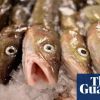 +27 +4
+27 +4North Sea cod at critically low levels, study warns
MSC may have to remove sustainable certification from cod as report calls for catches to be cut by two-thirds
-
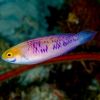 +23 +4
+23 +4Newly-Discovered 'Vibranium' Fish Named in Honor of Wakanda
While SCUBA diving off the coast of Zanzibar, marine biologist Luiz Rocha saw a fish he had never seen before. He sent a photograph to his collaborator Yi-Kai Tea, currently a Ph.D. candidate at the University of Sydney, who confirmed that it was a new species of fairy wrasse from the genus Cirrhilabrus. As a fan of the Marvel cinematic universe who had just helped to discover a bright purple fish in an isolated environment in Africa, Tea knew there was just one name they could give their discovery: Cirrhilabrus wakanda, the Vibranium fairy wrasse.
Submit a link
Start a discussion




















